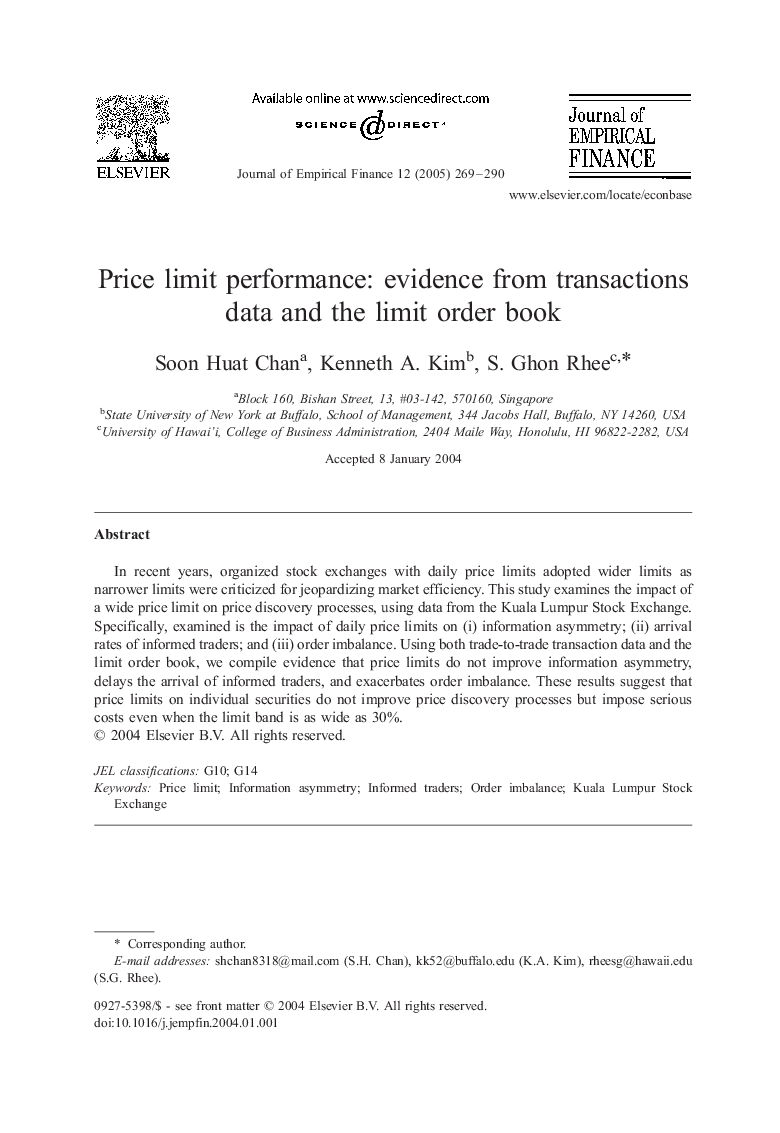| Article ID | Journal | Published Year | Pages | File Type |
|---|---|---|---|---|
| 10475279 | Journal of Empirical Finance | 2005 | 22 Pages |
Abstract
In recent years, organized stock exchanges with daily price limits adopted wider limits as narrower limits were criticized for jeopardizing market efficiency. This study examines the impact of a wide price limit on price discovery processes, using data from the Kuala Lumpur Stock Exchange. Specifically, examined is the impact of daily price limits on (i) information asymmetry; (ii) arrival rates of informed traders; and (iii) order imbalance. Using both trade-to-trade transaction data and the limit order book, we compile evidence that price limits do not improve information asymmetry, delays the arrival of informed traders, and exacerbates order imbalance. These results suggest that price limits on individual securities do not improve price discovery processes but impose serious costs even when the limit band is as wide as 30%.
Related Topics
Social Sciences and Humanities
Economics, Econometrics and Finance
Economics and Econometrics
Authors
Soon Huat Chan, Kenneth A. Kim, S. Ghon Rhee,
